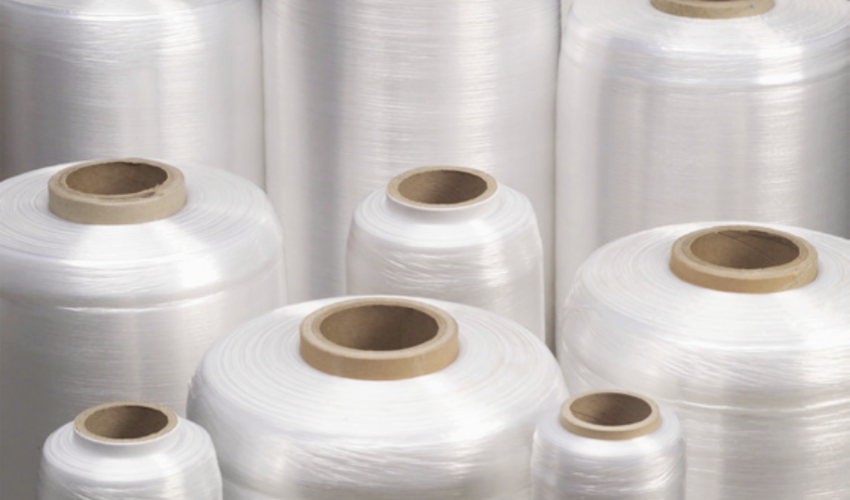
Insulated pallet wraps are essential tools in logistics, providing a reliable solution for maintaining the desired temperature of sensitive shipments throughout transit. These wraps, such as those offered by PWP Stretch Film, are designed specifically for businesses that handle perishable goods, pharmaceuticals, and other temperature-sensitive items. For shipments that require both temperature control and airflow, using breathable stretch film in combination with insulated wraps can help regulate moisture and prevent condensation buildup. This ensures that products remain safe and effective, even in fluctuating environmental conditions. By implementing the right wrapping solutions, businesses can safeguard the integrity of shipments, minimize the risk of spoilage or damage, and meet industry standards and customer expectations for quality. Whether for short or long-distance transportation, insulated pallet wraps play a critical role in preserving the quality of temperature-dependent goods.
Insulated pallet wrap is a specialized thermal barrier used in shipping and logistics to maintain consistent temperatures for temperature-sensitive products during transit and storage. Made from high-quality materials designed for insulation, it creates a layer of protection around pallets, effectively shielding contents from external temperature fluctuations. Products like those from PWP Stretch Film serve as a critical tool for industries that require specific temperature ranges, such as pharmaceuticals, perishable food items, and chemical goods.
The primary purpose of pallet wrap insulation is to ensure that the products remain stable and undamaged, even when subjected to potentially harsh external conditions. When businesses carefully wrap around pallets with insulated material, they create an effective barrier that prevents temperature-sensitive products from exposure to excessive heat or cold. This, in turn, extends product shelf life and preserves the quality and safety of the goods.
Insulated pallet wrap is designed with features that make it essential for businesses dealing with temperature-sensitive goods. Whether used for pharmaceuticals, food products, or specialized chemicals, insulated pallet wrap offers a multi-layered, durable, and reusable solution to maintain stable temperatures and prevent spoilage.
One of the most distinctive features of insulated pallet wraps is its multi-layered design, which combines various insulating materials to create a robust barrier:
Each layer works together to protect goods during storage and transportation, ensuring that products remain within desired temperature ranges.
Using insulated pallet wrap offers several key advantages for businesses that rely on temperature control. These benefits include:
A crucial feature of insulated pallet wrap is its reusability. Unlike single-use shipping solutions, insulated pallet wrap is designed for multiple uses, providing both economic and environmental benefits:
These key features make insulated pallet wrap an invaluable asset in various industries, providing reliable protection, reusability, and cost savings. By investing in high-quality wraps, companies can meet regulatory standards for temperature control while also reducing their environmental impact.
When selecting an insulated pallet wrap, businesses have multiple options that cater to specific needs, from temperature control to convenience and sustainability. Below, we explore three primary types of insulated pallet wraps, highlighting their unique benefits and ideal applications.
Insulated pallet wraps are available in various forms, each designed to meet the demands of both cold and hot environments. Companies like PWP Stretch Film offer high-quality insulated wraps suited for different applications, providing reliable protection in diverse climates. These wraps are engineered to help maintain stable internal temperatures, whether in cold or warm settings, making them ideal for industries requiring precise temperature management. Some features and benefits include:
Reusable pallet wrap options offer a sustainable and cost-effective alternative to single-use thermal packaging. Constructed from durable materials, reusable wraps from brands like PWP Stretch Film are designed to withstand multiple uses, making them an eco-friendly choice for companies aiming to reduce waste. Reusable pallet wraps deliver numerous advantages, such as:
Reusable wraps are ideal for companies committed to sustainable practices and seeking durable solutions for temperature-sensitive logistics.
Pallet wrap rolls are convenient for businesses that need flexibility in wrapping various sizes and shapes of pallets. These rolls, often available from suppliers like PWP Stretch Film, offer customizable solutions, allowing users to cut and wrap as needed. Pallet wrap rolls are beneficial for a variety of reasons:
Overall, pallet wrap rolls offer a highly adaptable and economical solution for businesses, combining ease of use with effective temperature insulation.
Insulated pallet wraps come in multiple types to suit different logistical needs, from single-use wraps for cold and hot conditions to reusable options that support sustainability and pallet wrap rolls that provide customization. Each type of insulated pallet wrap offers unique features tailored to ensure the safe and temperature-stable transit of products, enabling businesses to meet quality standards while maintaining operational efficiency.
Insulated pallet wrap provides significant advantages for businesses that transport temperature-sensitive goods. These wraps, like those available from PWP Stretch Film, are designed to protect products from environmental factors, preserving their integrity throughout the supply chain. Here are the main benefits of insulated pallet wrap, from cost savings to enhanced product quality.
One of the primary advantages of insulated pallet wrap is its cost-effective approach to temperature control. By using insulated wraps, businesses can reduce their dependency on refrigerated transport systems, resulting in substantial savings without compromising product quality. Key benefits include:
Insulated pallet wrap is designed for practicality and ease of use, providing convenience throughout various stages of the logistics process. Lightweight and flexible, insulated pallet wraps are easy to handle and adaptable to different types of shipments. Key points of convenience and efficiency include:
These features make insulated pallet wraps a convenient, efficient choice for businesses with high shipping volumes, ensuring both ease of use and effective temperature control.
Insulated pallet wrap offers more than just temperature stability; it also protects products from various environmental factors that could compromise quality. This level of protection is particularly beneficial for industries dealing with food, pharmaceuticals, or chemical products, where maintaining strict quality control standards is essential. Benefits of enhanced product protection include:
Using insulated pallet wrap, especially reusable types, contributes to sustainability efforts by reducing waste and supporting environmentally responsible practices. Some of the key environmental benefits include:
The benefits of insulated pallet wrap make it an essential tool for businesses that prioritize both product quality and cost-effective logistics. By investing in high-quality wraps, companies can maintain temperature control, simplify handling, and contribute to sustainability, making insulated pallet wrap a smart choice for various industries.
When searching for insulated pallet wrap suppliers nearby, it’s essential to consider several key factors that ensure the wrap meets the demands of your shipments. From product durability to insulation ratings, evaluating these aspects can help businesses select high-quality wraps that provide reliable temperature control and protection.
To locate the best insulated pallet wrap suppliers, focus on critical qualities that affect the wrap’s performance and longevity. Here are some tips to help you make an informed choice:
When it comes to insulated pallet wrap, quality and certification are crucial. Certified wraps adhere to industry standards for safety, insulation, and environmental impact. Selecting certified wraps from reputable suppliers provides several benefits, including:
To ensure you’re selecting the right insulated pallet wrap, consider the following factors in addition to supplier location:
Finding the right insulated pallet wrap near you involves careful assessment of product quality, supplier reliability, and compatibility with your shipping needs. By focusing on durability, insulation effectiveness, and certification, businesses can ensure they invest in wraps that will reliably protect their temperature-sensitive goods.
Understanding the factors that influence the cost of insulated pallet wrap can help businesses make informed purchasing decisions that balance budget and quality. Several elements affect the price of insulated pallet wraps, from material composition to reusability and brand reputation. By evaluating these aspects, businesses can choose wraps that meet their temperature control needs while managing costs effectively.
The price of insulated pallet wrap varies significantly based on specific characteristics. Here’s a breakdown of the primary cost factors:
When comparing reusable and disposable insulated pallet wraps, it’s essential to consider both initial investment and long-term savings. Here’s an overview of the pros and cons of each type:
In addition to material and reusability, several other factors can impact the cost of insulated pallet wraps:
By understanding these insulated pallet wrap cost factors, businesses can select the most economical solution that meets their operational needs. Whether choosing reusable wraps for long-term savings or disposable options for one-time shipments, assessing material, thickness, and supplier quality ensures a cost-effective investment in product protection.
The amount of pallet wrap needed to wrap a pallet depends on several factors, including pallet size, load height, and the type of wrap being used. Generally, a standard-sized pallet requires about 300-400 feet of wrap for secure coverage, but this can vary. If using hand-applied wrap, operators might need more wrap to ensure tightness, while machine-wrapped pallets often need less due to consistent application. Stretch percentage also plays a role: some wraps stretch up to 250%, which means less material may be required. Thicker, high-performance wraps may offer stronger holding power, reducing the amount needed to wrap the pallet fully. To minimize waste and ensure optimal protection, it’s recommended to calculate the total area to be wrapped and consult with suppliers on specific wrap recommendations.
Pallet wrap, commonly known as stretch film or stretch wrap, is a material specifically designed for securing and stabilizing pallet loads. Stretch film is a versatile plastic wrap, typically made from linear low-density polyethylene (LLDPE), that stretches around items to create a secure barrier against movement, dust, and moisture. Depending on the intended application, pallet wrap can vary in thickness, elasticity, and strength. Other variations include blown stretch film and cast stretch film, each providing distinct benefits in terms of puncture resistance and clarity. Additionally, terms like shrink wrap and stretch wrap are often used interchangeably, though they differ; shrink wrap requires heat to form-fit around items, while stretch wrap adheres through tension.

My name is James Thompson, and I’m the editor of this website dedicated to Stretch Film, Pallet Wrap, and Stretch Wrap products.
My passion for packaging began when I noticed the challenges companies face in securing their products efficiently for transportation and storage. This inspired me to delve deep into the world of stretch films and pallet wraps, exploring the latest technologies and best practices.
I aim to provide valuable insights, practical tips, and up-to-date industry trends to assist you in making informed decisions. Whether you’re a small business owner or part of a large corporation, my goal is to support you in optimizing your operations and ensuring your products reach their destination safely.
Thank you for visiting, and I look forward to accompanying you on your journey toward better packaging solutions.
Comments are closed